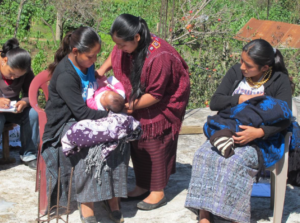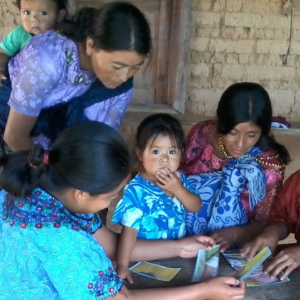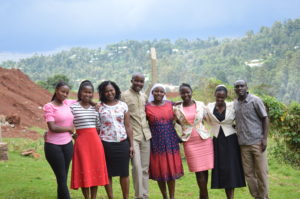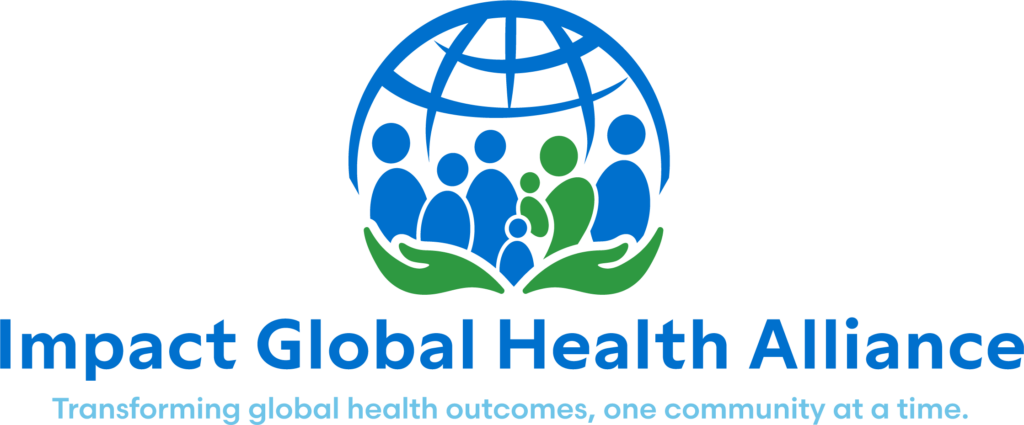Since 1983, Impact Global Health Alliance Global has partnered with communities to save the lives of women and children. These communities have some of the highest child and maternal mortality rates in the world. They are located in remote, almost forgotten areas where preventable diseases like malnutrition, pneumonia, and childbirth complications can quickly lead to death.
Impact Global Health Alliance Global continually makes measurable impacts on these communities’ health by focusing on prevention, health education, and establishing relationships with existing health facilities, governmental officials, and local leaders. Its Community-based, Impact-Oriented (CBIO) methodology has been one of the most significant aspects of the organization’s success worldwide, and as of recent years, in the United States.
The CBIO methodology is an approach to healthcare service and provision that allows local health care providers to understand better, more effectively treat, and accurately measure outcomes and impacts for the most commonly found causes of unnecessary suffering, sickness, and death within their communities. For the CBIO methodology to succeed, it is imperative to get the local community involved. Impact Global Health Alliance Global has defined five essential leadership roles in this model:
- Promoter (P): Health Promoters are leaders in their communities. They regularly conduct visits to mothers of children under two-years-old to explain how to care for babies and make sure they are reaching the appropriate height and weight. Promoters also give Care Group lessons to the Community Health Volunteers, who then talk to neighboring mothers about maternal health and how programs like birthing centers, Casa Maternas, can help. Promoters also organize home workshops where mothers learn about what to feed their children and prepare and cook nutritious meals using locally-available, affordable foods.
- Care Group (CG): These are volunteer peer educators that meet regularly with the project staff for training and supervision. Each volunteer is responsible for periodically visiting 10-15 neighbors, sharing what she/he has learned, which facilitates behavior change at the household level. Care Groups create a multiplying effect to reach every beneficiary household and provide the structure for a community health information system that reports on new pregnancies, births, and deaths detected during home visits.

- Community Health Volunteer (CHV): Community members play an active role in their neighbors’ health and success by becoming Community Health Volunteers. These are men and women who are trained to offer health education and selected services in the community. These activities occur during routine home visits, during community group meetings, and in the context of Care Group activities.
- Neighbor Women (NW): Neighbor Women teach other women about nutrition, pneumonia, diarrhea, and hygiene and sanitation. For example, in the past, women wouldn’t feed their babies colostrum, but through these Neighbor Women and the Care Groups, mothers have learned about the importance of colostrum and exclusive breastfeeding (EBF). For many years, Impact Global Health Alliance Global has been supporting World Breastfeeding Week and the practice of exclusive breastfeeding as the best option for infant feeding and educates mothers on its life-saving benefits.
- Village Health Committee (VHC): Village Health Committees are intended to be a part of the communities’ local self-governance structure in which Impact Global Health Alliance Global has a presence. Their purpose is to build and maintain accountability mechanisms for community-level health services provided through Impact Global Health Alliance Global in-country partners.
Impact Global Health Alliance Global’s purpose is to make sure they don’t have to keep returning to these communities. Instead, they help provide the tools, knowledge, and confidence that these communities need to take ownership of their health, well-being, and future. The CBIO model ensures that the local programs and services meet the needs of every person in each community.
Here are some recent highlights from around the world:
Matongo, area of Kisii County, Kenya
- Families are understanding the value of the Care Groups better and are supporting this intervention more than ever. As a result of their, many are now following the hygiene lessons, and households are improving their hygiene practices. For example, families are no longer allowing their chickens to be inside their home.
- During the Care Group “Garden” lesson, Care Groups and Neighbor Women provided community members with nutritious food ideas.

- After the Care Group “Kitchen Garden” lesson, Promoters went out and utilized space around their houses to plant kales, pumpkin leaves, managu, groundnuts, and onions. Now, they can eat from this garden and also sell and get some income for their families.
- In Matongo, most of the lessons have been taught. The most impactful one is the exclusive breastfeeding (EBF) lesson because most women, before Impact Global Health Alliance Global presence, didn’t know the importance of breastfeeding. Now, most women are practicing it and have seen positive health changes in their children.
Iranda, area of Kisii County, Kenya
- Promoters learned about the Village Health Communities this year. Clan Elders have welcomed them, and Community Health Volunteers have offered their full support.
- During the “Handwashing” lesson, Care Groups and Neighbor Women asked for soap as incentives, but due to financial limitations, Promoters advised to use ash instead.
- After the Care Group “Creating Change” lesson, Promoters started a fundraiser. Every month, they will contribute money to a general fund, so they can buy a pregnant goat for one of them at a time, as a way to support their household and income and local economy.
- More than 24 lessons have been shared in this community. The most impactful one was the “Handwashing” lesson, which was implemented before COVID. This lesson helped change behaviors that are now effectively practiced during the pandemic.
Nyagoto
- The Care Group “Mask Making” lesson, during COVID, has been a great success in the Nyagoto community, since most people could not afford them.
- Promoters explained the value of education to Neighbor Women, who were expecting to be supported with money.
- “Soap Making” was one of the Care Group lessons many learned during COVID; some started making soap for sale to make a profit $3.69.
- After more than ten lessons, the most one was the “COVID” lesson because most families learned about COVID and how to prevent it, which reduced the fear and anxiety in people.
If you’re interested in supporting vulnerable communities, visit curamericas.org for more information. Volunteers and donations are always needed.




